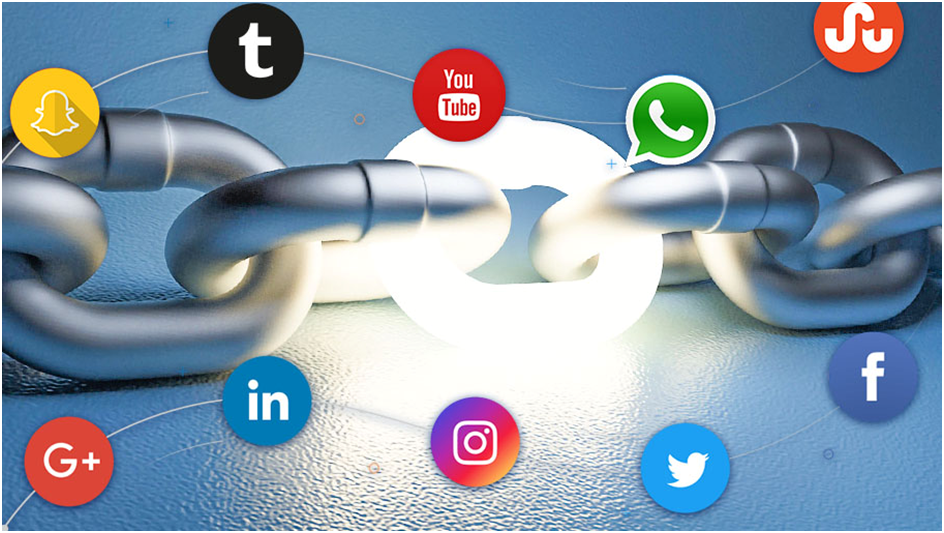The Role of Social Media in Link Building

In today’s digital landscape, link building remains a crucial component of search engine optimization (SEO). While traditional link-building methods still hold value, social media has emerged as a powerful tool for acquiring high-quality backlinks and driving traffic to your website. By strategically using social media platforms, businesses can amplify their content, attract authoritative links, and boost their search rankings.
This guide explores how social media can enhance your link-building strategy and provide sustainable SEO benefits.
The Connection Between Social Media and Link Building
Although social media links themselves are typically nofollow (meaning they don’t directly contribute to SEO rankings), the engagement, visibility, and referral traffic they generate play an essential role in acquiring organic backlinks. When content is widely shared, it reaches a larger audience, increasing the chances of authoritative websites linking back to it.
Key benefits of social media for link building include:
- Content Amplification: Sharing content increases exposure, attracting potential backlinks.
- Brand Authority: Active social engagement builds credibility, encouraging other sites to reference your content.
- Referral Traffic: Well-optimized posts drive users to your website, enhancing its visibility.
- Relationship Building: Social media allows direct interactions with influencers, bloggers, and journalists who can link to your content.
Best Social Media Platforms for Link Building
1. Twitter
Twitter is an excellent platform for sharing content and engaging with industry leaders. A well-crafted tweet with relevant hashtags and mentions can lead to increased shares, retweets, and ultimately, backlinks from authoritative sources.
Pro Tip: Engage with influencers by commenting on their posts and sharing their content before requesting backlinks.
2. LinkedIn
LinkedIn is ideal for professional networking and thought leadership. By sharing insightful articles and engaging in discussions within LinkedIn groups, you can attract links from business websites and blogs.
Pro Tip: Publish long-form articles on LinkedIn and include backlinks to your website.
3. Facebook
With billions of active users, Facebook allows content to spread rapidly. Creating engaging posts and participating in niche groups can help drive website traffic and increase backlink potential.
Pro Tip: Leverage Facebook Ads to boost content visibility and attract industry professionals who may link to your posts.
4. Instagram
Although Instagram doesn’t allow direct links in captions, it serves as a powerful tool for brand awareness. Businesses can use the “Link in Bio” feature or Instagram Stories to drive traffic to high-quality content that earns backlinks.
Pro Tip: Partner with influencers who can share your blog links in their stories.
5. Reddit & Quora
These platforms are great for content discovery. Engaging in discussions and providing valuable insights can drive targeted traffic and encourage users to link back to your resources.
Pro Tip: Avoid spamming; instead, focus on providing well-researched answers with relevant links.
Strategies to Leverage Social Media for Link Building
1. Create Shareable Content
Crafting engaging and informative content increases its likelihood of being shared and linked to. Infographics, original research, case studies, and how-to guides perform particularly well.
2. Use Hashtags Strategically
Hashtags help categorize content and increase visibility. Using trending and niche hashtags enhances your reach to the right audience.
3. Engage with Influencers & Journalists
Networking with industry experts on social media increases the chances of getting organic backlinks from authoritative sites.
4. Host Social Media Contests & Giveaways
Contests encourage user participation and content sharing, which leads to increased exposure and potential backlinks.
5. Repurpose Content for Different Platforms
Transforming a blog post into an infographic or a video makes it more shareable, increasing the likelihood of earning backlinks from diverse sources.
6. Monitor Mentions & Request Backlinks
Using tools like Google Alerts and Mention, track where your brand is being referenced and politely request backlinks when relevant.
7. Leverage Guest Posting & Social Sharing
Publishing guest posts on high-authority sites and sharing them through social media maximizes content reach and backlink potential.
Measuring the Impact of Social Media on Link Building
To assess the effectiveness of your social media link-building strategy, monitor the following metrics:
- Referral Traffic: Use Google Analytics to track traffic coming from social media platforms.
- Backlink Acquisition: Tools like Ahrefs and Moz help analyze new backlinks generated from social shares.
- Social Engagement: Measure shares, likes, and comments to determine content reach.
- Brand Mentions: Track online discussions about your brand using Mention or Brand24.
Conclusion
Social media is a game-changer for modern link-building strategies. While social signals may not directly impact SEO, the exposure and referral traffic they generate significantly contribute to acquiring organic, high-quality backlinks. By creating shareable content, engaging with industry influencers, and strategically using different platforms, businesses can maximize their online presence and boost their search rankings.
If you haven’t yet integrated social media into your link-building strategy, now is the time to start. With a consistent, data-driven approach, you can increase your website’s authority, improve search visibility, and stay ahead in the competitive digital landscape.





